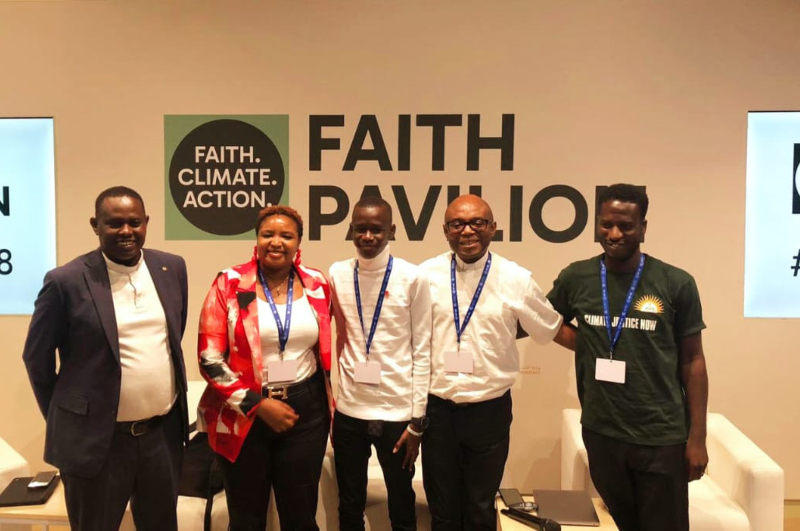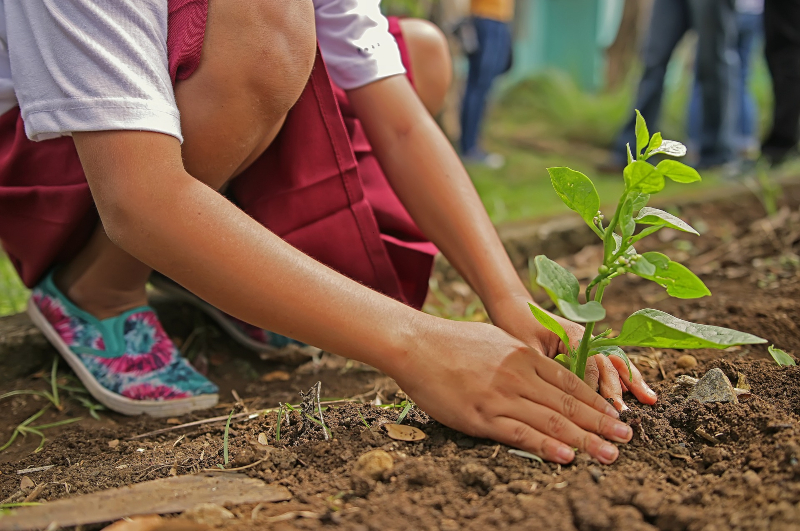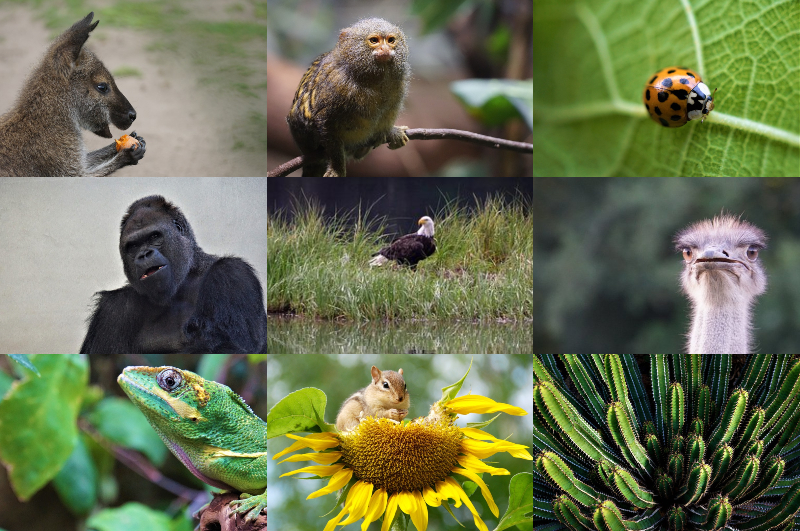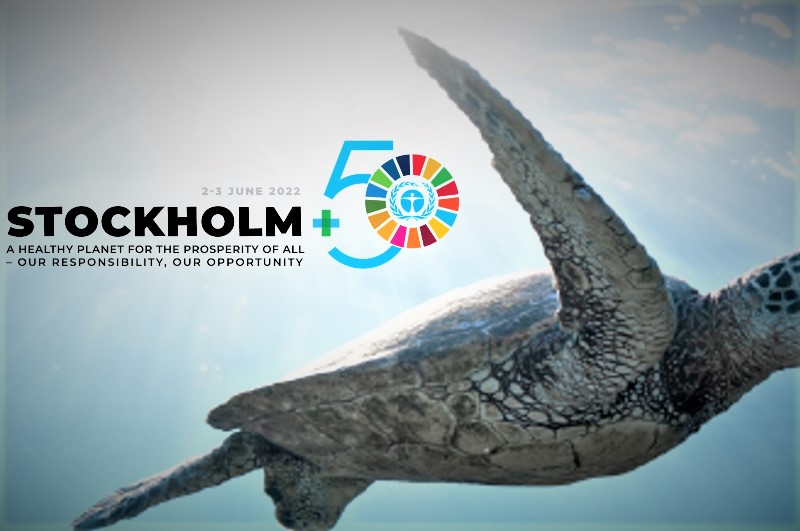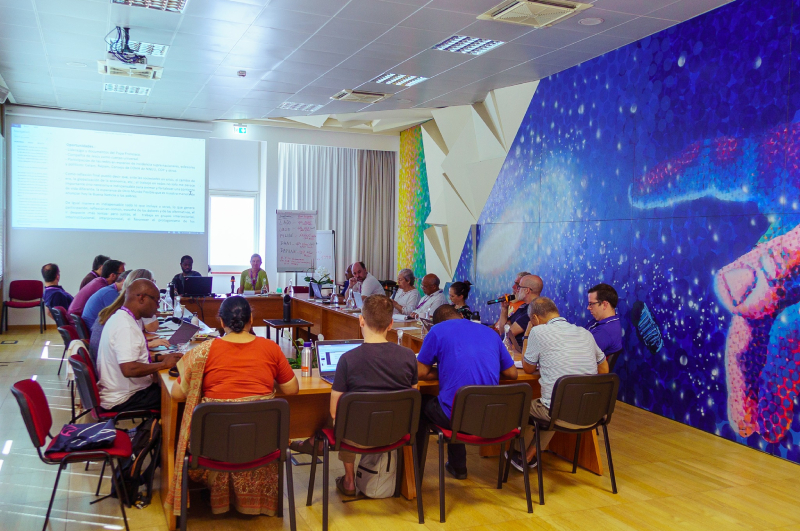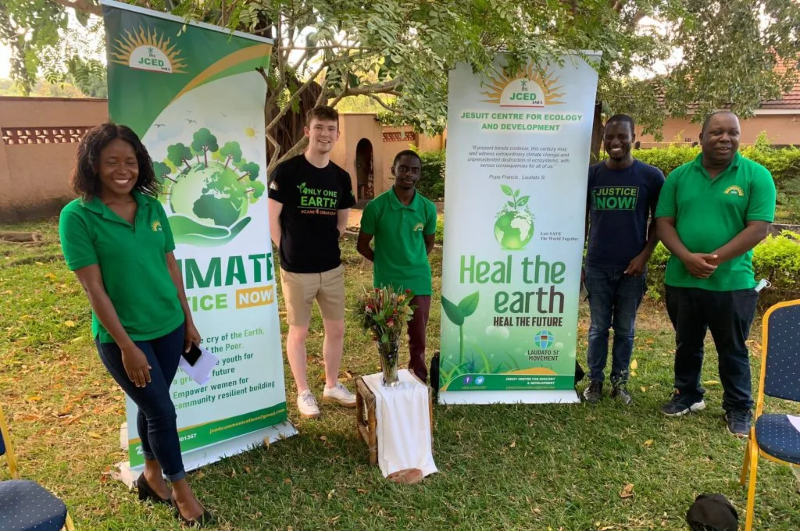

Representatives from the Jesuit Conference of Africa and Madagascar (JCAM) played a significant role in the climate conferences COP27 and COP28, held in Sharm el-Sheikh, Egypt in 2022 and Dubai, UAE in 2023, respectively. Their participation emphasized the region's climate justice concerns.
Fr. Charles Chilufya, SJ, Executive Director of the Jesuit Justice and Ecology Network Africa (JENA), provided regular updates on COP28 negotiations, highlighting their relevance to African issues through JENA’s newsletter. Father Chilufya also facilitated a session in the Faith Pavilion titled "A Just Transition for Africa: Mining for Climate Change Mitigation – Faith and Theological Perspectives," which explored the extraction of technology minerals necessary for climate solutions and the associated ethical implications.
Fr. Rigobert Minani, SJ, Coordinator of the Ecclesial Network on the Congo Basin Forest (REBAC), brought the message of "Laudate Deum" to COP28. At a side event in the Democratic Republic of the Congo Pavilion, Father Minani stressed the Universal Church's engagement in COP28 and the role of ecclesial networks in supporting Indigenous Peoples.
David Munene of the Catholic Youth Network for Environmental Sustainability in Africa (CYNESA) convened a group of Catholic NGO representatives at COP28, sparking the formation of a Catholic Actors network dedicated to engaging in environmental discussions at the UN level, guided by the principles of integral ecology.
In February, Ecojesuit held a dialogue with JCAM and collaborators to align Conference priorities and activities, enhance communication dynamics for the exchange of local and regional stories, and plan the Ecojesuit Meeting 2024, scheduled for July.
Efa Ravelonantoandro from the Centre Arrupe Madagascar shared the Center’s initiatives in campaigning against single-use plastics. They are also preparing for participation in COP29 and COP30 in Baku, Azerbaijan, and Brazil, respectively, by collaborating with national coalitions and youth organizations involved in ecological work. This underscores the need for broader civil society engagement as countries prepare new rounds of Nationally Determined Contributions (NDCs).
Esther Wangari, JENA Program Manager, highlighted the establishment of thematic working groups to coordinate ecology and social action. Brother Ngonidzashe Edward SJ, Executive Director of the Jesuit Ecology and Development Center (JCED) in Malawi, leads the group on food sovereignty and justice. Planned dialogues and forums aim to foster discussions on transforming food systems and engaging in policy advocacy, particularly within the UNFCCC COP process.
Fr. Leonard Chiti SJ, representing the Scottish Catholic International Aid Fund at COP28, urged provinces and institutions in Southern Africa to intensify climate advocacy and share their efforts more widely. He pointed out that equitable access to the Loss and Damage Fund could become a focal point, highlighting the Kasisi Agricultural Training Centre's work on organic farming methods.
Anastasia Makunu, Conference Communications Coordinator, noted that communication remains a challenge due to the diverse range of action stories. Forming a coordinated team of communication representatives from various institutions is crucial for dynamic information sharing and driving policy change.
The JENA and JCAM offices, based in Nairobi, Kenya, benefit from proximity to the United Nations Environment Programme (UNEP) headquarters and the UN Environment Assembly, providing them with timely updates on global environmental events and activities.
Ecojesuit Meeting 2024 in Zambia
During the Ecojesuit Meeting 2023, participants agreed to explore options for the next annual meeting in Africa in July 2024. Further discussions with JCAM representatives in February confirmed the Kasisi Agricultural Training Centre (KATC) in Lusaka, Zambia as the venue. The meeting aims to deepen understanding of food and water concerns in various local contexts. Brother Edward expressed hope that the event would help form a network of ecology delegates within the Conference, with active provincial participation.
Ecojesuit will continue to support and publicize JCAM’s activities, contributing to a better understanding of the realities in Africa and Madagascar, and will collaborate with JCAM partners in organizing and coordinating the Ecojesuit Meeting 2024.
Follow our work on these websites:
JENA: www.jenaafrica.org
JCAM COP campaigns: www.ej.jesuits.africa
Ecojesuit: https://www.ecojesuit.com/
Related Articles
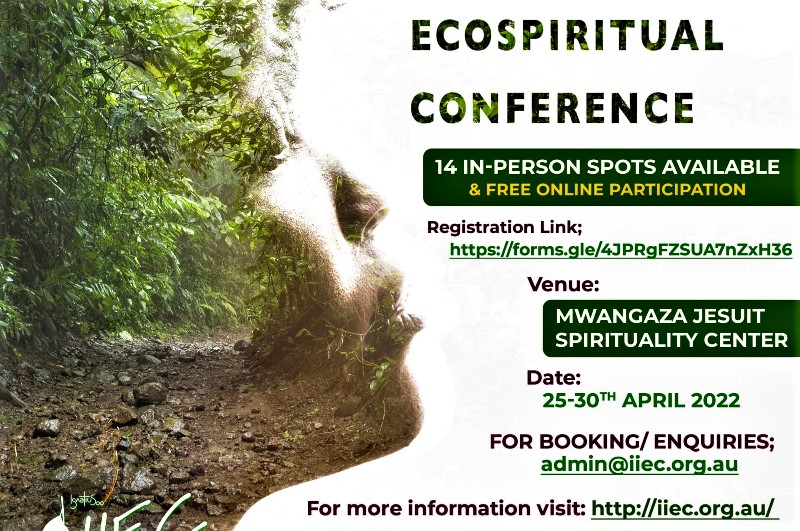



Select Payment Method
Pay by bank transfer
If you wish to make a donation by direct bank transfer please contact Fr Paul Hamill SJ treasurer@jesuits.africa. Fr Paul will get in touch with you about the best method of transfer for you and share account details with you. Donations can be one-off gifts or of any frequency; for example, you might wish to become a regular monthly donor of small amounts; that sort of reliable income can allow for very welcome forward planning in the development of the Society’s works in Africa and Madagascar.
Often it is easier to send a donation to an office within your own country and Fr Paul can advise on how that might be done. In some countries this kind of giving can also be recognised for tax relief and the necessary receipts will be issued.


